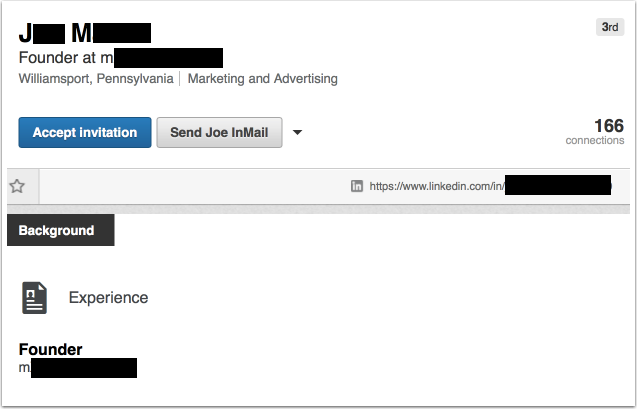Fraud
Profiting off spam
The FTC filed suit against Match.com for using fake accounts to entice people into signing up for accounts. (WA Post) Part of the FTC’s allegations include that Match flagged the accounts and prevented them from contacting paying Match users while simultaneously allowing the users to contact free Match users.
Read MoreMarch 2017: The Month in Email
It’s that time again… here’s a look at our last month of blog posts. We find it useful to recap each month, both to track trends and issues in email delivery and to provide a handy summary for those who aren’t following along breathlessly every single day. Let us know if you find it useful too!
As always, I wrote about email filters. It’s so important to recognize that filters aren’t arbitrary — they’re detailed instructions that help meet specific user needs, and the more you are cognizant of that, the better you’ll be able to work with them. Additionally, filters aren’t perfect and likely never will be. False positives and false negatives are frustrating, but as long as spam is still a viable business for spammers, they’ll continue to figure out how to work around filters. As such, we can’t expect filters to be 100% accurate in determining what constitutes wanted and unwanted mail.
Part of this, of course, is due to the problem of fraudulent signups. Companies aren’t particularly vigilant about address acquisition and hygiene, and as a result, they’ll claim you “signed up” for their email when you did not. Some people believe that a confirmed opt-in (COI) will solve this problem, but our experience is companies are reluctant to leave revenue on the table, and that they will continue to mail to addresses that have not confirmed.
Address sharing and co-reg is also part of the problem. As we saw in the extensive RCM data breach, many major brands continue to work with third-party senders to send mail in ways that are quite clearly spam. And in more criminal activity, I looked at the rise of botnets and how some of those criminals were brought to justice. In other justice news, there’s been an indictment in the Yahoo breach and another CASL enforcement action.
I wrote a post about bounce handling and “relaying denied” error messages, which are quite rare. It’s useful to have an understanding of these and other error messages, since bounces are sometimes indicative of a larger technical issue, such as when AOL accidentally bounced all messages for a short period last week. Speaking of AOL, we noted that there’s no official timeline for the move from Verizon addresses to AOL addresses following the 2015 acquisition, but it may be worth considering asking your customers to update their addresses.
Spam and filters aren’t the only factors of course. It can be challenging to figure out the multiple factors that make up the black box of delivery. And of course, the most important part of delivery continues to be engagement, engagement, engagement.
I wrote a few posts this month on why I do what I do, and why it’s so important to me. First, I wrote about A Day Without A Woman, and my choice not to participate in offering advice and guidance for that day. The truth is that I enjoy sharing what I know and helping people solve problems. I was honored to be named one of 11 Innovators in Email, and I know that my volunteer work in the industry and my unpaid blogging work is a big part of that. It may sound corny, but I really do believe we are on the front lines of the fight of good vs. evil online, and despite the distractions of politics and world events, we must all continue to do our part.
September 2016: The month in email
Happy October, everyone. As we prepare to head to London for the Email Innovations Summit, we’re taking a look back at our busy September. As always, we welcome your feedback, questions, and amusing anecdotes. Seriously, we could use some amusing anecdotes. Or cat pictures.

We continued to discuss the ongoing abuse and the larger issues raised by attacks across the larger internet infrastructure. It’s important to note that even when these attacks aren’t specifically targeting email senders, security issues affect all of us. It’s important for email marketers to understand that increased attacks do affect how customers view the email channel, and senders must take extra care to avoid the appearance of spam, phishing, or other fraudulent activity. I summarized some of the subscription form abuse issues that we’re seeing across the web, and noted responses from Spamhaus and others involved in fighting this abuse. We’re working closely with ESPs and policy groups to continue to document, analyze and strategize best practices to provide industry-wide responses to these attacks.
I was pleased to note that Google is stepping up with a new program, Project Shield, to help journalists and others who are being targeted by these attacks by providing hosting and DDoS protections.
I’m also delighted to see some significant improvements in email client interactions and user experiences. I wrote a bit about some of those here, and I added my thoughts to Al’s discussion of a new user interaction around unsubscribing in the iOS 10 mail client, and I’ll be curious to see how this plays out across other mail clients.
For our best practices coverage, Steve wrote about global suppression lists, and the ways these are used properly and improperly to prevent mail to certain addresses. I wrote about using the proper pathways and workflows to report abuse and get help with problems. I also wrote about the ways in which incentivizing address collection leads to fraud. This is something we really need to take seriously — the problem is more significant than some bad addresses cluttering up your lists. It contributes to the larger landscape of fraud and abuse online, and we need to figure out better ways to build sustainable email programs.
Is there such a thing as a perfect email? I revisited a post from 2011 and noted, as always, that a perfect email is less about technology and more about making sure that the communication is wanted and expected by the recipient. I know I sound like a broken record on this point (or whatever the 21st century equivalent metaphor of a broken record is….) but it’s something that bears repeating as marketers continue to evolve email programs.
We had a bit of a discussion about how senders try to negotiate anti-spam policies with their ESPs. Is this something you’ve experienced, either as a sender or an ESP?
In Ask Laura, I covered shared IP addresses and tagged email addresses, questions I get fairly frequently from marketers as they enhance their lists and manage their email infrastructures. As always, we welcome your questions on all things email delivery related.
Affiliates can be liable for fraud
An article popped up on LinkedIn about a recent 2nd court of appeals ruling that I thought was interesting.
Back in 2011, the FTC and the state of Connecticut filed suit against a company called LeanSpa and their affiliate marketer called LeadClick. LeanSpa sold various diet products through negative option marketing. LeadClick was the affiliate company they used to help drive traffic and customers to their websites.
LeadClick and their parent company was included in the suit because the FTC alleged that they were aware of and facilitated the false claims made by their affiliates. The case went to court and LeadClick lost. They appealed to the 2nd Circuit court. Last week the 2nd Circuit Court upheld the trial court’s finding of liability for LeadClick.
In its press release for the case, the FTC says:
Sanford Wallace goes to Jail
Sanford Wallace has been sentenced to 2 years in jail by the US District court in San Jose for contempt of court and electronic mail fraud. Sanford has been around for more than 2 decades. He is one of the spammers that drove me to learn how to read headers and report spam back in the late nineties.
Sanford has been in and out of courts and the news almost as long as he’s been spamming. When I dug into Pacer this morning to grab a copy of the sentencing report I see multiple cases, some going back as far as 1996. There aren’t electronic records for Concentric Network v. Wallace, et al. (case: 5:96-cv-20829-RMW) but the final disposition of the case says “Permanent Injunction.”
Fraud, terms of service and email marketing
![]() Here at the Atkins house we’re still both recovering from the M3AAWG plague. I don’t know what it was that we shared during the conference, but it’s knocked many folks over. I don’t have a lot to blog about this afternoon so I was looking through some of my old blog posts to get at least some content up before I give up for the weekend.
Here at the Atkins house we’re still both recovering from the M3AAWG plague. I don’t know what it was that we shared during the conference, but it’s knocked many folks over. I don’t have a lot to blog about this afternoon so I was looking through some of my old blog posts to get at least some content up before I give up for the weekend.
I found an old post about permission (Permission: It May Not Be What You Think It Is). The post discusses where a woman sued Toyota over emails from an online marketing campaign. I’d totally forgotten about that blog post, so I started looking at what happened with the case.
In the original case Toyota created a social media campaign where people could opt their friends in to be the target of a prank.
Facebook scams move to LinkedIn
There’s a fairly common Facebook scam where someone clones an account, then sends out friend requests to friends of that person. This actually happened to a friend over the holiday break. The only problem was that most of the folks who got friend requests were actually security people. Security people who thought it was very, very funny to play along with said scammer.
The scam account didn’t last long, partly because FB security is pretty good and partly because a few of the folks the scammer invited were FB employees. I’m sure, though, that for a brief moment the scammer thought he’d found the motherlode of scam victims.
Today I got a similar scam on LinkedIn. A very bare account with little in the way of information about who this was.
I don’t like connecting with these kinds of profile. But, the name does sound vaguely familiar. So I do a little Googling. And I find another LinkedIn profile for the same person, but this profile has a lot more info: A picture, a statement, 500+ connections, all the things one expects from a real person on LinkedIn.
So yes, Facebook scams have rolled over to LinkedIn. Be careful out there, folks. Pay attention to who you’re friending on all social media, not just FB or LinkedIn. Discretion is the better part of valor and all.
Seedy underworld
ESPs have to deal with spammers, phishers and scammers getting onto their networks. Mailgun talks about some of the things they’ve found our about these problem customers.
Read MoreSpamming to hide fraud
An interesting article at NetworkWorld last month, describing spam bombs to victims of fraud and identity theft to hide the transactions and notifications from financial institutions.
Read MoreGuilty of violating CAN SPAM
Al Ralsky has long been known as “the king of spam.” He has a long history of spamming, suing ISPs who block his mail and refusing to provide him with connectivity. He was profiled in the Detroit Free Press based on his spamming activity more than 5 years ago. He also has a history of convictions for fraud and other related crimes.
Yesterday, he and some of his family and business partners pled guilty to another raft of charges including fraud, money laundering and CAN SPAM violations. This may be the first time someone has pled guilty to violating CAN SPAM. Press reports indicate there is jail time in his future.
Detroit Free Press article
Washinton Post article
DirectMag article
This is the type of mailer that all mailers compete with. Everyone had to deal with spam from Al Ralsky: recipients, senders and ISPs. Thanks to the justice department, FBI and everyone involved for their hard work.